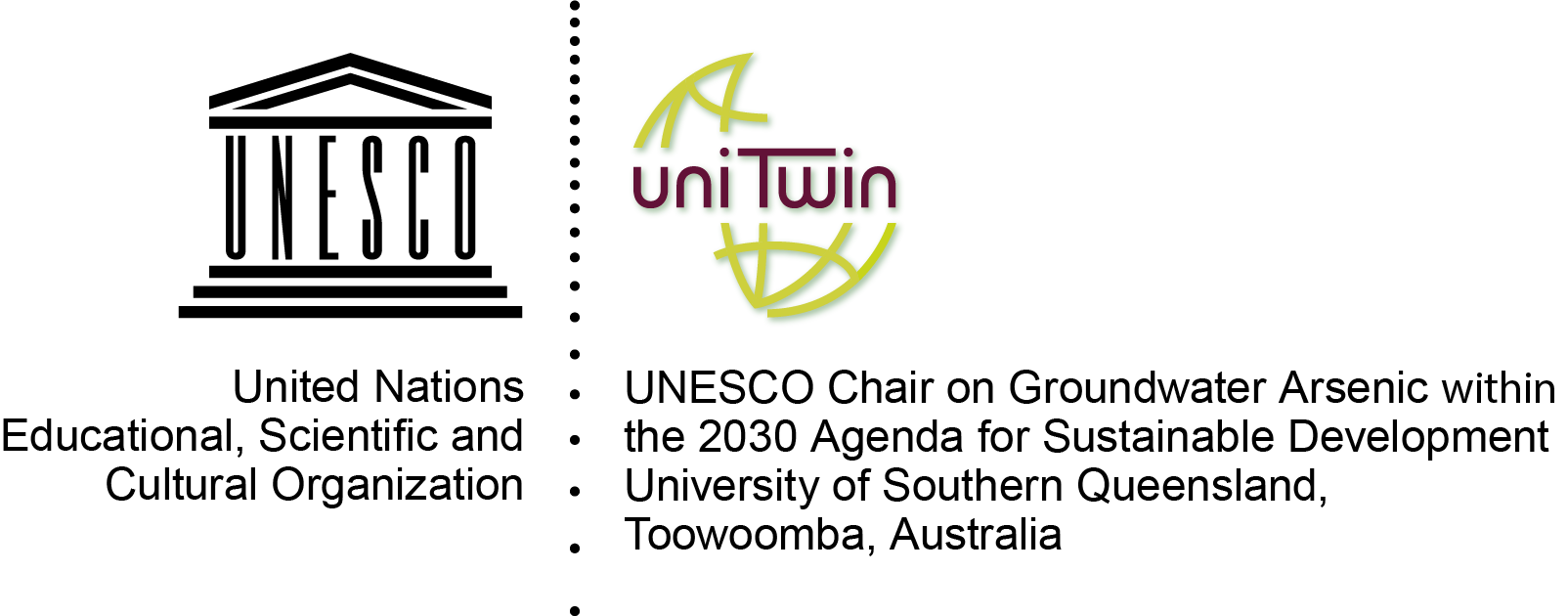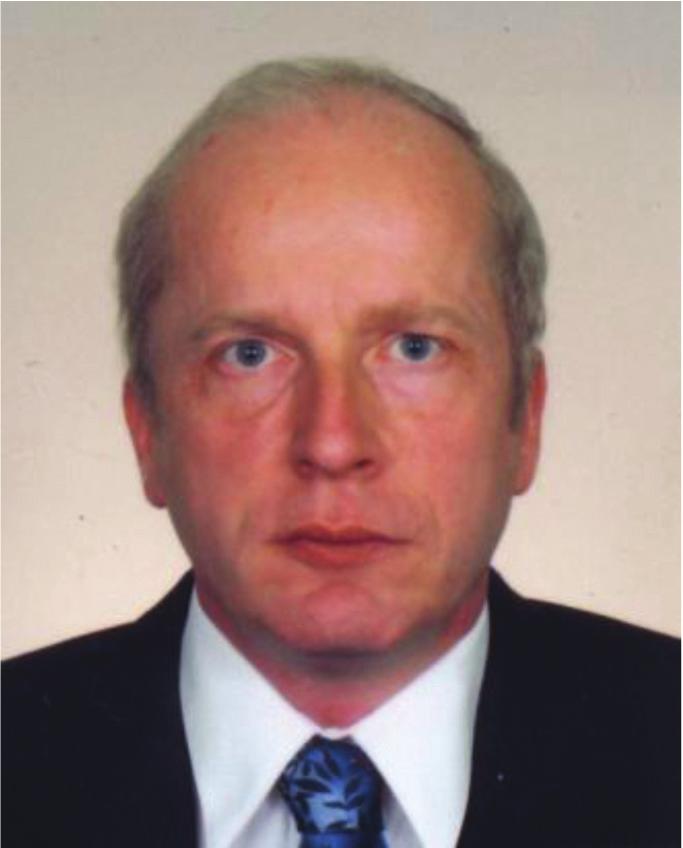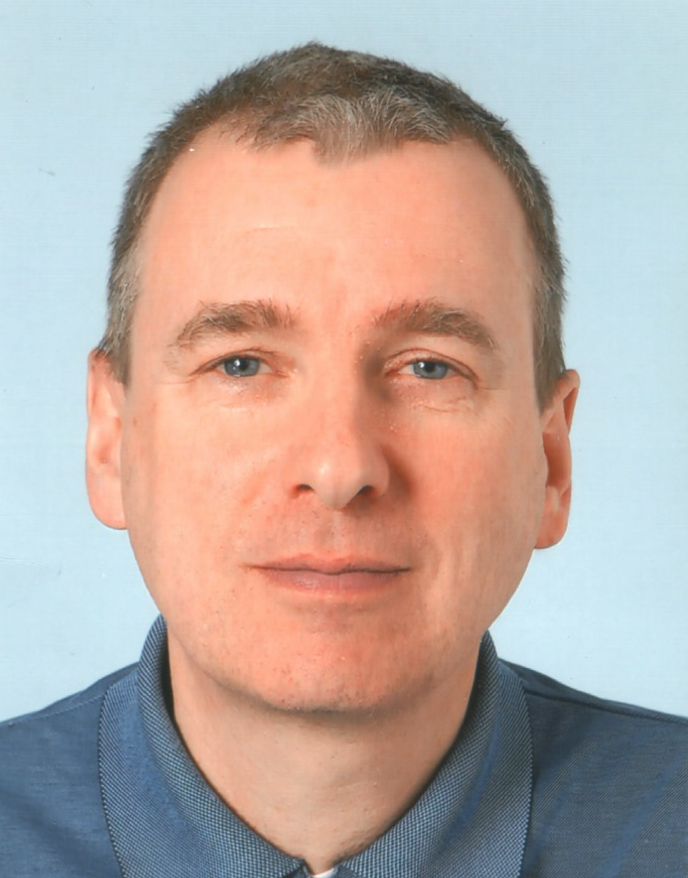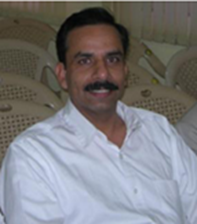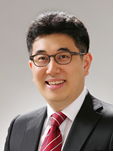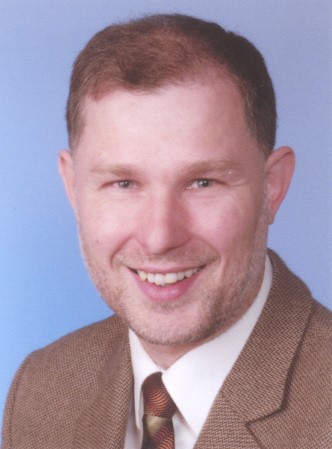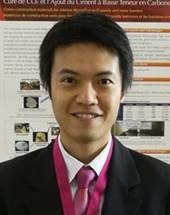Members
Senior Members
Professor Jochen Bundschuh
Professor and UNESCO Chair on Groundwater Arsenic, University of Southern Queensland (USQ), Toowoomba, QLD, Australia
Biography
Jochen Bundschuh (1960, Germany), finished his PhD on numerical modeling of heat transport in aquifers in Tübingen in 1990. From 1993 to1999 he served as an expert for the German Agency of Technical Cooperation (GTZ, now GIZ) and as a long-term professor for the DAAD (German Academic Exchange Service) in Argentine working on subsurface and surface hydrology. From 2001 to 2008 he worked within the framework of the German governmental cooperation (Integrated Expert Program of CIM; GTZ/BA) as adviser in mission to Costa Rica at the Instituto Costarricense de Electricidad (ICE). Here, he assisted the country in evaluation of its low-enthalpy geothermal resources for power generation. Since 2005, he is an affiliate professor of the Royal Institute of Technology, Stockholm, Sweden. In 2006, he was elected Vice-President of the International Society of Groundwater for Sustainable Development ISGSD. From 2009–2011 he was visiting professor at the Department of Earth Sciences at the National Cheng Kung University, Tainan, Taiwan.
Since 2012, Dr. Bundschuh is a professor in hydrogeology at the University of Southern Queensland (USQ), Toowoomba, Australia where he works transdisciplinary in the fields of water resources, hydrogeochemistry, environmental chemistry, low/middle enthalpy geothermal resources, water and wastewater treatment. Since February, Prof. Bundschuh is leading the new USQ based “UNESCO Chair on Groundwater Arsenic within the 2030 Agenda for Sustainable Development” which is a unique global umbrella and hope for research and mitigation of the global arsenic problem, which originates mostly from natural (geogenic) sources and which affects drinking water and food in over 70 countries.
Dr. Bundschuh is author of the books “Low-Enthalpy Geothermal Resources for Power Generation” (2008) and “Introduction to the Numerical Modeling of Groundwater and Geothermal Systems”. He is editor of 18 books and editor of the book series “Multiphysics Modeling”, “Arsenic in the Environment”, “Sustainable Energy Developments” and “Sustainable Water Developments”. Since 2015, he is an editor-in-chief of the Elsevier journal “Groundwater for Sustainable Development”.
Jochen.Bundschuh@unisq.edu.au
Professor Michael Berg
Head of Department of Water Resources and Drinking Water Eawag, Swiss Federal Institute of Aquatic Science and Technology, Dubendorf, Switzerland
Biography
Dr Berg is an environmental scientist at the Swiss Federal Institute of Aquatic Science and Technology (Eawag) where he heads the Department Water Resources and Drinking Water. He received a PhD in geochemistry from the University of Karlsruhe, Germany. His research focuses on the occurrence, fate and behavior of organic and inorganic contaminants in groundwater and surface water environments, with a specific interest in biogeochemical processes. Since 1998 he has been involved in environmental issues in Vietnam, Cambodia and China where groundwater arsenic and manganese contamination are of major concern. His research was awarded with the medal of honor from the Government of Vietnam. He further was engaged in large-scale groundwater surveys and arsenic risk modelling of Pakistan, Sumatra and Burkina Faso. A recent interest is the Amazon Basin where surprisingly little is known about groundwater quality. In the last decade his group has pioneered in geospatial risk modelling of geogenic contaminants at local to global scales, with the latest outcome being the free groundwater assessment platform GAP (www.gapmaps.org). He has authored and co-authored numerous research articles in international top journals. Several of his (co-)authored studies had significant impacts on society and were highlighted in public media around the globe.
Michael.Berg@unisq.edu.au
Michael.Berg@eawag.ch
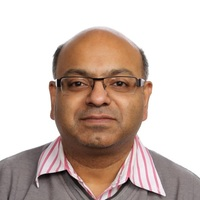
Professor Prosun Bhattacharya
KTH Royal Institute of Technology, Department of Sustaianable Development, Stockholm, Sweden
Biography
Prosun Bhattacharya (1962) holds a PhD in Sedimentary Geochemistry from University of Delhi, India (1990). He is a Professor of Groundwater Chemistry and Coordinator of the KTH-International Groundwater Arsenic Research Group, at the Department of Sustainable Development, Environmental Science and Engineering at KTH Royal Institute of Technology, Stockholm, Sweden. From 2016-2019, he has been affiliated to the School of Civil Engineering & Surveying & International Centre for Applied Climate Science at the University of Southern Queensland, Australia as Adjunct Professor. He is engaged with research on groundwater contamination in sedimentary aquifers in different parts of the world, especially focusing on geogenic contaminants – arsenic and fluoride. He has collaborative research engagements with universities and research organizations in India, Bangladesh, China, Australia, Argentina, Ghana, Costa Rica, Bolivia, Tanzania, Turkey and USA. He has coordinated the prestigious Swedish International Development Cooperation Agency supported action research and implementation project “Sustainable Arsenic Mitigation-SASMIT” Community driven initiatives to target arsenic safe groundwater as sustainable mitigation strategy in Bangladesh* (2007-2017).
He has authored/co-authored over 490 international publications in peer-reviewed journals and conference proceedings, cited more than 10,950 times (Google Scholar and Google h-index 51) and i10-index of 139. He has organized several international workshops on natural arsenic in groundwater and sustainable mitigation and edited 11 books on diverse aspects of natural arsenic in groundwater and groundwater for sustainable development until 2017. He is the Editor in Chief of the newly incepted Journal Groundwater for Sustainable Development published by Elsevier and Specialty Chief Editor of Frontiers in Environmental Sciences: Specialty Section on Groundwater Resources and Management and Associate Editor of the two reputed journals Journal of Hydrology and Environment International. Since 2011, he has been responsible for Developing Nations Coordination of the IWA Specialist Group Metals and Related Substances in Drinking Water. Since March 2017, he has been elected as the chair of the IWA Specialist Group Metals and Related Substances in Drinking Water. Based on his global engagements in the field of arsenic research he has been honored with the title as the Fellow of the Geological Society of America in April, 2012 and has been conferred with the title of the fellow of the International Water Association (IWA Fellow) in September 2018.
Prosun@kth.se
Biography
Prof. Dr. Jan Hoinkis conducted a doctorate in thermodynamics at the University of Karlsruhe, Germany (now Karlsruhe Institute of Technology) in 1989. After completion of his thesis he moved to the Swiss company Ciba-Geigy, where he was working as head of a R&D group on process development in the field of fine chemicals production with focus on environmentally friendly technologies. He has been working since 1996 as a professor at the Karlsruhe University of Applied Sciences giving lectures in chemistry, thermodynamics as well as environmental process engineering. His R&D work is focused on water treatment and water reuse with special attention on membrane technologies. He was project coordinator of several national and international R&D projects. From 2008-2017 he was appointed Scientific Director of the Institute of Applied Research, which is the central research facility at the Karlsruhe University of Applied Sciences. Starting in 2016 he coordinates a Horizon2020 EU project with 10 partners from European and Africa countries which aims at developing an integrated approach for water management by providing an integral, sustainable, cost-effective and robust solution for water sanitation combined with clean water for aquaculture and irrigation in the Lake Victoria basin. Prof. Dr. Jan Hoinkis conducted a doctorate in thermodynamics at the University of Karlsruhe, Germany (now Karlsruhe Institute of Technology) in 1989. After completion of his thesis he moved to the Swiss company Ciba-Geigy, where he was working as head of a R&D group on process development in the field of fine chemicals production with focus on environmentally friendly technologies. He has been working since 1996 as a professor at the Karlsruhe University of Applied Sciences giving lectures in chemistry, thermodynamics as well as environmental process engineering. His R&D work is focused on water treatment and water reuse with special attention on membrane technologies. He was project coordinator of several national and international R&D projects. From 2008-2017 he was appointed Scientific Director of the Institute of Applied Research, which is the central research facility at the Karlsruhe University of Applied Sciences. Starting in 2016 he coordinates a Horizon2020 EU project with 10 partners from European and Africa countries which aims at developing an integrated approach for water management by providing an integral, sustainable, cost-effective and robust solution for water sanitation combined with clean water for aquaculture and irrigation in the Lake Victoria basin.
Jan.Hoinkis@unisq.edu.au
Jan.Hoinkis@hs-karlsruhe.de

Professor Lena Ma
Professor of Environmental Biogeochemistry, College of Environmental and Resource Sciences, Zhejiang University, Hangzhou. P.R. China
Biography
Dr. Ma is a professor at the College of Environmental and Resource Sciences, Zhejiang University. She received her PhD degree from Colorado State University in environmental soil chemistry. After her post-doc at Ohio State University, she joined the Soil and Water Science Department at University of Florida. After working there for 25 years, she left University of Florida to work full time in China in 2019. Dr. Ma received the Overseas Distinguished Young Scholar of CNSF in 2004, Changjiang Chair Professor of MOE in 2006, and national Thousand Talent Professor of COD in 2011. For the past 30 years, she has been working in the areas of 1) biogeochemistry of trace metals in soil-water-plant-microbe ecosystem, and 2) phytoremediation and chemical remediation of trace metal contaminated water, soils, and wastes. She is known for discovering the first-known arsenic-hyperaccumulator Pteris vittata (Chinese brake fern), which was reported in Nature in 2001. She is a Fellow of American Association for the Advancement of Science (AAAS), American Society of Soil Science (ASSS), and American Society of Agronomy (ASA). She received the Discovery 2001 Award from the Royal Geographical Society and Discovery Networks Europe and she is a recipient of USDA Secretary’s Honor Award in 2004. Currently, she serves as an Editor for Critical Review in Environmental Science and Technology and an Associate Editor for Chemosphere. In addition, she is on the editorial boards of several international journals including Environment International and Environment Research. Professor Ma publishes close to 400 SCI papers including in Nature, and Environmental Science and Technology.
Lena.Ma@unisq.edu.au
lqma@zju.edu.cn
Biography
Andy Meharg has a strong international standing, and a leading expert on arsenic. He is highly cited and has written two authored books on this subject, a populatar science text, “Venomous Earth”, and the other an overview of issues regarding arsenic in rice titled “Arsenic & Rice” which is co-authored with Fangje Zhao. He has an ISI H-factor of 70, with an excess of 17,000 citations of his published work. He was the first to discover, and bring to light, issues regarding the wide-spread elevation of arsenic in rice. His work is focused on characterizing the geographical extent of this contamination, the soil biogeochemistry underlying arsenic release in paddy soils, the physiology of arsenic uptake, transport & metabolism in plants, and the human consequences of consuming arsenic from rice. Along the way he has developed state-of-the-art approaches for assessing arsenic speciation in environmental media, based around ICP-MS and synchrotron technologies.
His work has directly led to setting of WHO, EU and Chinese setting of standards for inorganic arsenic in rice, and he continues to survey the impact that these standards are having in rice products circulating in the human food-chain.
His current work is now focused on:
- global cycling of arsenic and how that pertains to global patterns of arsenic in rice.
- removing arsenic from the human food-chain.
Andrew.Meharg@unisq.edu.au
aa.meharg@qub.ac.uk
Professor Dinesh Mohan
Professor of Environmental Sciences, Jawaharlal Nehru University, New Delhi, India
Biography
Dr. Dinesh Mohan is a professor in the School of Environmental Sciences at Jawaharlal Nehru University, New Delhi. For the last more than 22 years, he is involved in the development of sustainable treatment technologies for contaminants removal and recovery. He has developed/synthesized variety of activated carbons/magnetic carbons/ nano-engineered porous solids/biochars adsorbents, metal oxide adsorbents, mixed hybrid metal oxide adsorbents with different surface chemistries and adsorption mechanisms for inorganic and organic contaminants. He is also involved in biochar development, characterization and utilization in water filtration, soil immobilization and fertility, carbon sequestration and climate change mitigation. He has successfully converted lignocellulosic biomass into biofuels. These biooils can be used to generate heat and electricity. These can further be upgraded into transportation fuels. Agricultural residues converted into bio-oil also give a bio-char byproduct. He has applied this biochar to soil for CO2 mitigation. Biochar application increases C-residence time in soil relative to the application of same biomass directly to soil therefore can be considered over particular timescales to result in a net atmospheric CO2 withdrawal. In addition, biochar without further modification applied to soil may directly reduce emissions of other greenhouse gases including nitrous oxide and/or methane from soil.
Prof. Dinesh Mohan has published >110 papers in top notch high impact factor Journals with total citations of >19,200 and h factor of 52 (i10-index 80). Prof. Mohan expertise and accomplishments were recognized at the national and international levels when Dr. Mohan was first awarded the 2007 Scopus Award (given by Elsevier) as the outstanding young (under 40 yrs.) scientist in this discipline. He has also received Hiyoshi Environmental Award 2009 given by Hiyoshi Corporation Japan for outstanding contribution in doing fundamental research for Environmental Conservation and Protection. Recently, Council and Scientific and Industrial Research (CSIR) has published the highlights of the 70 years of OUTSTANDING SCIENCS IN INDIA. In the list of leading 70 research papers, Prof. Mohan’s papers ranked no. 2, 9, 10, 32, 35 and 63. Very recently, Prof. Dinesh Mohan has been selected for the prestigious “Thomson Reuters 2016 list of Highly Cited Researchers”. This is the THIRD time in a row since he was selected as “Highly Cited Researchers 2014 and 2015”. Prof. Mohan has been named to the World’s Most Influential Scientific Minds 2014 and 2015 published by Thomson Reuters.
Prof. Dinesh Mohan is also listed in Two Categories among Elsevier’s list of most Highly Cited Researchers 2016 Developed for Shanghai Ranking’s Global Ranking of Academic Subjects. Prof. Mohan is listed TWICE in the list of most cited researchers selected from academic research institutions worldwide in Environmental Science and Engineering as well as in Chemical Engineering.
dm_1967@hotmail.com
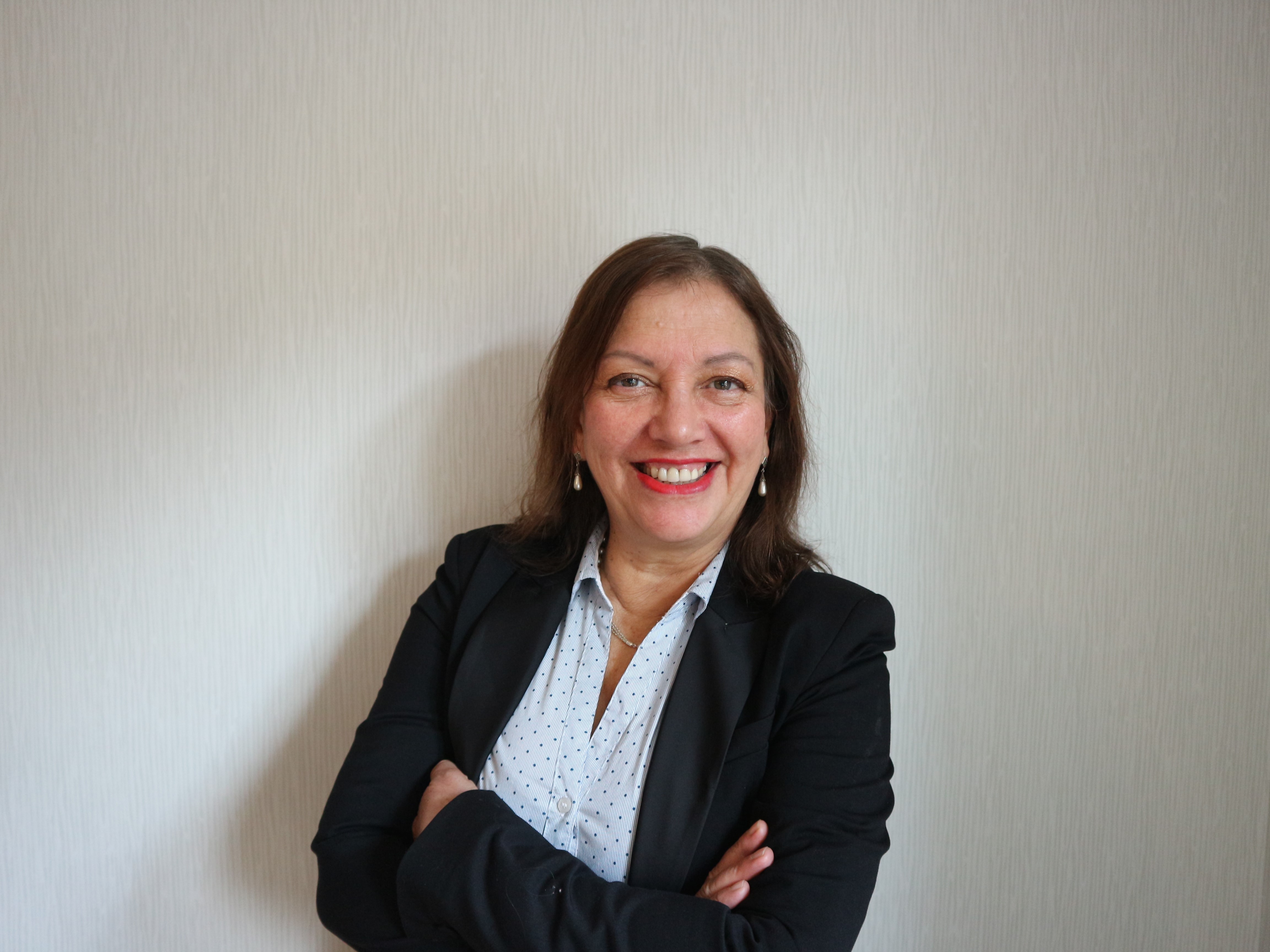
Dr Nury Morales-Simfors
RISE SICS East AB-Linköpings Universitet, Linköping, Sweden
Biography
Nury Simfors is a senior researcher with a doctoral degree in Engineering Geology, who has a wide network of research contacts in Latin American, the Caribbean and African universities. She has contributed to several interesting projects in the field of mining, geothermal exploration, engineering and environmental geology in the academy and industry. During her field investigations she has combined remote sensing techniques and GIS. She also taught Environmental Geology at University of Florencio de Castillo in Costa Rica and the application of GIS in the study of natural hazards at University of Linköping, Sweden, where she has been advisor. She has long-term experience in networking, including edition of newsletters (e.g. for GOAL (Geo-Network of Latin American-German Alumni)).
Through the University of Linköping and the Swedish Defense University, she has collaborated with the University of Costa Rica, Malawi University and the University of Florida, where she has developed methods for understanding data modeling, analysis and integration models between geothermal systems and geological, geochemical, geophysical and social changes. In Costa Rica and the Caribbean region, she has contributed with seismic hazard studies and the evaluation of the regional neotectonics in southern Costa Rica and the Caribbean.
In recent years, she has expanded her transdisciplinary research interest to the study of environmental contamination by natural (geogenic) contaminants (e.g. arsenic, radon) in volcanic and non-volcanic areas. She is collaborating within the UNESCO Chair in the study of arsenic in geothermal fluids and volcanic emissions, and radon degassing changes for the monitoring of active faults, seismic and volcanic activity aiming to develop reliable methods to forecast earthquakes and volcanic eruptions using geogenic precursors for these events.
Nury.Simfors@unisq.edu.au
simforsmoralesnury@outlook.com
Prof Jack C. Ng
Professor of Environmental Toxicology & Risk Assessment, Queensland Allliance for Environmental Health Sciences, The University of Queensland
Biography
Jack Ng is one of few certified toxicologists in Australia (DABT – Diplomate of the American Board of Toxicology) with a PhD in Chemistry and Environmental Toxicology from the University of Queensland. Jack is a Professor in Environmental Toxicology and Risk Assessment at the Queensland Alliance for Environmental Health Sciences (QAEHS) incorporating the former National Research Centre for Environmental Toxicology (Entox), Faculty of Health and Behavioral Sciences, the University of Queensland. At QAEHS, Jack is the Research Theme Leader for Environmental Health Risk Assessment. At the international level, Jack’s expertise has been recognized by World Health Organization (WHO), International Agency for Research on Cancer (IARC), and WHO/FAO Joint Expert Committee on Food Additives (JECFA) as demonstrated by his contribution to a number of monographs and technical reports produced by these agencies. At the national level, Jack was a member of the National Health and Medical Research Council Health Investigation Levels Working Committee who oversaw the recent National Environmental Protection Measures review of HILs, and Committee of the Project Advisory Group for setting Health Screening Levels of petroleum hydrocarbons. He is an assessor for Registrants and Fellows of the Australasian College of Toxicology and Risk Assessment.
Much of his research aims to generate data to fill gaps that are necessary for a risk-based approach health risk assessment under the risk assessment framework. Jack has over 460 publications of which about 50% are peer-reviewed articles, monographs, technical reports and book chapters. He has completed numerous technical reports and reviews related to the risk assessment of contaminated sites for the industries as well as government agencies. He has conducted “arsenic exposure, biomarkers and health” research related to groundwater in Xinjiang (China) and Bangladesh, and arsenic-bearing coal in Guizhou (China). He is known for his development of a mouse model for arsenic carcinogenesis in the late 1990s. His research interest focuses on bioavailability and speciation of metals related to toxicological effect assessment, and more recently on the interaction and toxicity of mixed contaminants.
j.ng@uq.edu.au
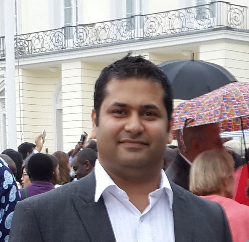
Dr Nabeel Khan Niazi
Assistant Professor, Environmental and Soil Chemistry & Hydrogeochemistry. Lead Arsenic CARe, Pakistan. Institute of Soil and Environmental Sciences, University of Agriculture Faisalabad, Pakistan
Biography
Dr. Niazi has been working since 2012 in environmental and soil chemistry & hydrogeochemitsry at the Institute of Soil and Environmental Sciences, University of Agriculture Faisalabad (UAF), Pakistan. He is the founder for a global arsenic network and research group – ‘Arsenic Contamination Assessment and Remediation’ (Arsenic CARe) (www.ArsenicCARe.com). He received a PhD from the University of Sydney, Australia in environmental and soil chemistry of arsenic. Dr Niazi did his postdoc at Southern Cross University in 2015 and after that, he completed another postdoc from the University of Bremen in 2017. For the past 6 years of his early career, he has been working in the areas of 1) environmental geochemistry of arsenic and other potentially toxic elements (PTEs) in groundwater-soil-plant ecosystem, and 2) hydrogeochemistry of geogenic contaminants, including arsenic and fluoride; 3) health risk assessment of arsenic and PTEs in drinking water and food crops; 4) arsenic accumulation and mitigation in paddy soil-rice system; 5) exploring some low-cost and efficient materials (e.g., biosorbents, biochar) and nanoparticles for treatment of arsenic-contaminated drinking water/wastewater; 6) resolving solid-phase speciation of arsenic by X-ray absorption spectroscopy and chemical methods, arsenic speciation in groundwater; 7) phytoremediation of arsenic and other PTEs contaminated soils.
He is currently on the editorial boards of Frontiers in Environmental Science, International Journal of Phytoremediation and Biochar (international SCI journals). During this short period of his early career, Dr. Niazi produced one PhD student and 11 MSc (Hons) students; secured many competitive grants including Grand Challenges Canada – Stars in Global Health. He published widely with over 69 SCI articles including in Science, Environmental Science & Technology and International Materials Reviews, and 11 scholarly book chapters.
NabeelKhan.Niazi@unisq.edu.au
Prof Yong Sik Ok
Full Professor and Director, Korea Biochar Research Center, Korea University, Seoul 02841, Republic of Korea
Biography
Dr. Yong Sik Ok is a Full Professor in the Division of Environmental Science and Ecological Engineering, Korea University, Seoul, Korea, where he also serves as the Director of the Korea Biochar Research Center. He also served a number of positions worldwide including Honorary Professor at the University of Queensland, Australia, Adjunct Professor at the University of Wuppertal, Germany and Guest Professor at Ghent University Global Campus, Ghent University, Belgium. Prof. Ok holds B.S. (1998), M.Sc. (2000) and Ph.D. (2003) from the Division of Environmental Science and Ecological Engineering, Korea University, Seoul. Prof. Ok was a Postdoctoral Fellow at the Department of Renewable Resources, University of Alberta, Canada and held Visiting Professorships in the Department of Renewable Resources (University of Alberta), in the Faculty of Bioscience Engineering (Ghent University), in the Department of Civil and Environmental Engineering (Hong Kong Polytechnic University) and in the Department of Chemical and Biomolecular Engineering (National University of Singapore). Prof. Ok’s academic background covers waste management, bioavailability of emerging contaminants, and bioenergy and value-added products such as biochar. Prof. Ok also has experience in fundamental soil science and remediation of various contaminants in soils and sediments. Prof. Ok is a Highly Cited Researcher of Web of Science (2018, Clarivate Analytics). Together with graduate students and colleagues, Prof. Ok has published over 550 research papers, 38 of which were ranked as ESI top papers (34 nominated as “Highly Cited Papers” and 4 nominated as “Hot Paper”). Prof. Ok maintains a worldwide professional network through his service as a Co-Editor for Critical Reviews in Environmental Science and Technology, and Associate Editor for Environmental Pollution, and as a Member of the Editorial Boards of Chemosphere, Journal of Analytical and Applied Pyrolysis and several other international scientific journals. In addition, Prof. Ok has served as a Guest Editor for many leading journals, such as Chemical Engineering Journal, Journal of Hazardous Materials, Bioresource Technology, Science of the Total Environment, Chemosphere, Plant and Soil, Journal of Environmental Management, Applied Geochemistry, Environmental Geochemistry and Health, Environmental Science and Pollution Research, and Geoderma. Prof. Ok is the founding chair and organizer of many internationally leading conferences, such as The 20th International Conference on Heavy Metals in the Environment (ICHMET 2020, Korea), The 9th International Conference on Geochemistry in the Tropics & Sub-Tropics (GEOTROP 2019, Australia), The 3rd International Conference on Biological Waste as Resource (BWR 2018, Hong Kong), The 2nd International conference on Bioresources, Energy, Environment and Materials Technology (BEEM 2018, Korea), The 4th International Conference on Contaminated Land, Ecological Assessment and Remediation (CLEAR 2018, Hong Kong) and many others. Prof. Ok has been involved in numerous national and international commissions and committees as an active member, and regularly serves as an external reviewer for national and international funding agencies.
Yongsik.Ok@unisq.edu.au
yongsikok@korea.ac.kr
Prof Jörg Rinklebe
Head of the Laboratory of Soil- and Groundwater-Management, Commission Head of Water- and Waste-Management
School of Architecture and Civil Engineering, University of Wuppertal, Wuppertal, Germany
Biography
Dr. Jörg Rinklebe is a Professor for Soil- and Groundwater-Management at the University of Wuppertal, Germany. From 1997 to 2006 Dr. Rinklebe has worked as a scientist, research associate and project leader at the Department of Soil Sciences at the UFZ Centre for Environmental Research Leipzig-Halle, Germany. Dr. Rinklebe has studied one year Ecology at the University of Edinburgh, Scotland, U.K. (1992-1993). He has studied Agriculture, specialized in Soil Science and Plant Nutrition, at the Martin-Luther-University Halle-Wittenberg, Germany, and received his Ph.D. in Soil Science at the same university. His main research is on wetland soils, sediments, waters, plants, and their pollutions (trace elements and nutrients) and linked biogeochemical issues with a special focus in redox chemistry. He also has a certain expertise in remediation of toxic elements contaminated soils and soil microbiology. Professor Rinklebe is internationally recognized particularly for his research in the areas of biogeochemistry of trace elements in wetland soils. He published plenty of scientific papers in leading international and national journals, two books entitled “Trace Elements in Waterlogged Soils and Sediments” (2016) and “Nickel in Soils and Plants” (2018) as well as numerous book chapters. He is serving as Co-Editor in Chief of the international journal Critical Reviews in Environmental Science and Technology (CREST) and Associate Editor Environmental Pollution and as guest editor of the international journals Environment International, Chemical Engineering Journal, Journal of Hazardous Materials, Science of the Total Environment, Chemosphere, Journal of Environmental Management, Applied Geochemistry, and Environmental Geochemistry and Health. Also, he is member on serval editorial boards (Ecotoxicology, Geoderma, Water, Air, & Soil Pollution, Archive of Agronomy and Soil Science) and reviewer for many international journals. He has organized several special symposia at various international conferences such as “Biogeochemistry of Trace Elements” (10th, 11th, 12th, 13th and 14th ICOBTE) and “International Conference on Heavy Metals in the Environment” (15th, 16th, 17th and 18th ICHMET). He was an invited speaker (plenary and keynote) at many international conferences. In 2016 he got an appointment as Honorable Ambassador for Gangwon Province, South-Korea which was renewed in June-2018. He is Visiting Professor at the Department of Environment, Energy and Geoinformatics at Sejong University, Seoul, South Korea and Guest Professor at the Department of Environmental Engineering, China Jiliang University, Hangzhou, Zhejiang, China.
Jorg.Rinklebe@unisq.edu.au
rinklebe@uni-wuppertal.de
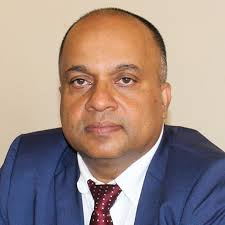
Prof Saman Seneweera
Professor & Director of the National Institute of Fundamental Studies, Kandy, Sri Lanka & Associate Professor at University of Southern Queensland, Toowoomba, Queensland
Biography
Saman Seneweera assumed duties as the Director of NIFS on 4th June 2018. He is associate professor in Plant Science at the University of Southern Queensland. The immediate aim of Professor Seneweera’s research program is to elucidate the mechanism of how plants adapt to climate stress, such as low water or nutrients, high temperature and high CO2 concentrations. The ultimate aim is to apply this knowledge to modify crop plants in to increase productivity and quality both in developed and developing countries. The ultimate intellectual aim is to understand the coordination of whole plant function through processes occurring at the level of single cells, particularly through processes of long-distance communication within plants and ecosystem. This aim is being addressed by combining genetic and genomic approaches with a broad-based understanding of plant physiology and agronomy approach. Last 25 years, he has worked in Sri Lanka, Australia, Japan and United State at various capacities. Internationally, Professor Seneweera is recognized as a leading researcher in plant Ecophysiology and Climate Change Biology. His work is cited highly (publication over 150, nearly 1,500 citations, H-index of over 22: Google Scholar, H10 over 35).
Saman.Seneweera@unisq.edu.au
dirifs@yahoo.com

Professor Barbara Tomaszewska
Professor of Hydrogeology, AGH University of Science and Technology (AGH-UST) & Mineral and Energy Economy Research Institute, Polish Academy of Sciences, Krakow, Poland
Biography
Barbara Tomaszewska (1971, Poland), finished her PhD degree in 2001 at the Faculty of Geology, Geophysics and Environmental Protection (Poland) in AGH – University of Science and Technology in Krakow (AGH-UST). From 2001 to 2007 she served as an expert for Geology and Environmental Protection in the Polish State Mining Authority. In March 2007, she joined the Department of Renewable Energy and Environmental Research at the Mineral and Energy Economy Research Institute, Polish Academy of Science (PAS MEERI) in Krakow, where she has held an independent researcher position until the present day. She is a member of the Institute’s Scientific Board and Deputy Head of the Division of Renewable Energy Sources. In 2011, she was awarded the Ministry of Environment’s badge of honor “For Merit in Polish Geology”.
Since 2015, she has been a professor of hydrogeology and geothermics at the Faculty of Geology, Geophysics and Environmental Protection at the AGH University of Science and Technology in Krakow, where she has been working transdisciplinary in the broad field of water resources and low-enthalpy geothermal resources, water and wastewater treatment, hydrogeochemistry, environmental chemistry and sustainable and renewable energy resources. Since 2015 she is a member of the Scientific Faculty Council and since 2019 she is a Deputy Chairman of the Earth and Related Environmental Sciences Discipline Council at the AGH-UST.
Prof. Tomaszewska is internationally recognized particularly for her studies in a field of sustainable management of geothermal resources, efficient utilization of geothermal water and advanced research aimed at the optimization of geothermal water treatment/concentration processes using membrane techniques. She published plenty of scientific papers in leading international and national journals, twelve books and played the role of editor or co-editor six of them including in particular “Geothermal Water Management” (Bundschuh (ed.), Tomaszewska (ed.), 2018), as well as she is an author of numerous book chapters. Since 2018, she is serving as Associate Editor of the Elsevier journal “Groundwater for Sustainable Development” and guest editor of the international journals “Journal of Hazardous Materials” and “Energies”. Also, she is an active reviewer for many international journals. She has organized several special symposia at various international conferences and was an invited speaker (plenary and keynote) at many international events.
As part of her scientific activity, she have participated in international cooperation, which has resulted in research projects which are being implemented or submitted for competitions Her work on the utilization of geothermal resources has led to her cooperation with numerous research units and enterprises which has taken the form of various agreements, joint projects or applications concerning joint international projects, joint research work and publications. As the leader, coordinator and/or main contractor, she has participated in 12 international projects implemented by the PAS MEERI and the AGH – University of Science and Technology under European Union programmes. As leader, coordinator and/or main contractor, she has taken part in the implementation of 18 national research projects, R&D projects and targeted projects commissioned by the Committee for Scientific Research, Polish Ministry of Science and Higher Education, National Centre for Research and Development, and Polish Minister of the Environment.
Barbara.Tomaszewska@agh.edu.pl
Assoc Prof Daniel C.W. Tsang
Programme Leader (EOSH), Department of Civil and Environmental Engineering, Hong Kong Polytechnic University, Hong Kong, China
Biography
Dan is currently an Associate Professor in the Department of Civil and Environmental Engineering at the Hong Kong Polytechnic University. He was an IMETE Visiting Scholar at Ghent University in Belgium, Visiting Scholar at Stanford University in the US, Senior Lecturer and Lecturer at the University of Canterbury in New Zealand, and Post-doctoral Fellow at Imperial College London in the UK and the Hong Kong University of Science and Technology. With a strong link to real-world environmental challenges, Dan’s research group strives to develop cost-effective and low-impact solutions to ensure sustainable urban development, enhance the engineering infrastructure, and create new ways in which we manage contaminated soils/sediments, municipal solid waste, and urban waters. Dan has published over 210 SCI journal papers and received Excellence in Review Award for Environmental Science and Technology and Chemosphere. He serves as Associate Editor of Science of the Total Environment, Critical Reviews in Environmental Science and Technology, Environmental Geochemistry and Health, and Journal of Soils and Sediments, as well as Editorial Board Member of Bioresource Technology and Chemosphere. He has also served as Guest Editor for Journal of Hazardous Materials, Bioresource Technology, Chemosphere, Science of the Total Environment, Journal of Cleaner Production, and Environmental Geochemistry and Health. Dan is chair and organizer of 2nd Biological Waste as Resource Conference (BWR2017, Hong Kong) and 4th Contaminated Land, Ecological Assessment and Remediation Conference (CLEAR2018, Hong Kong).
Dan.Tsang@polyu.edu.hk
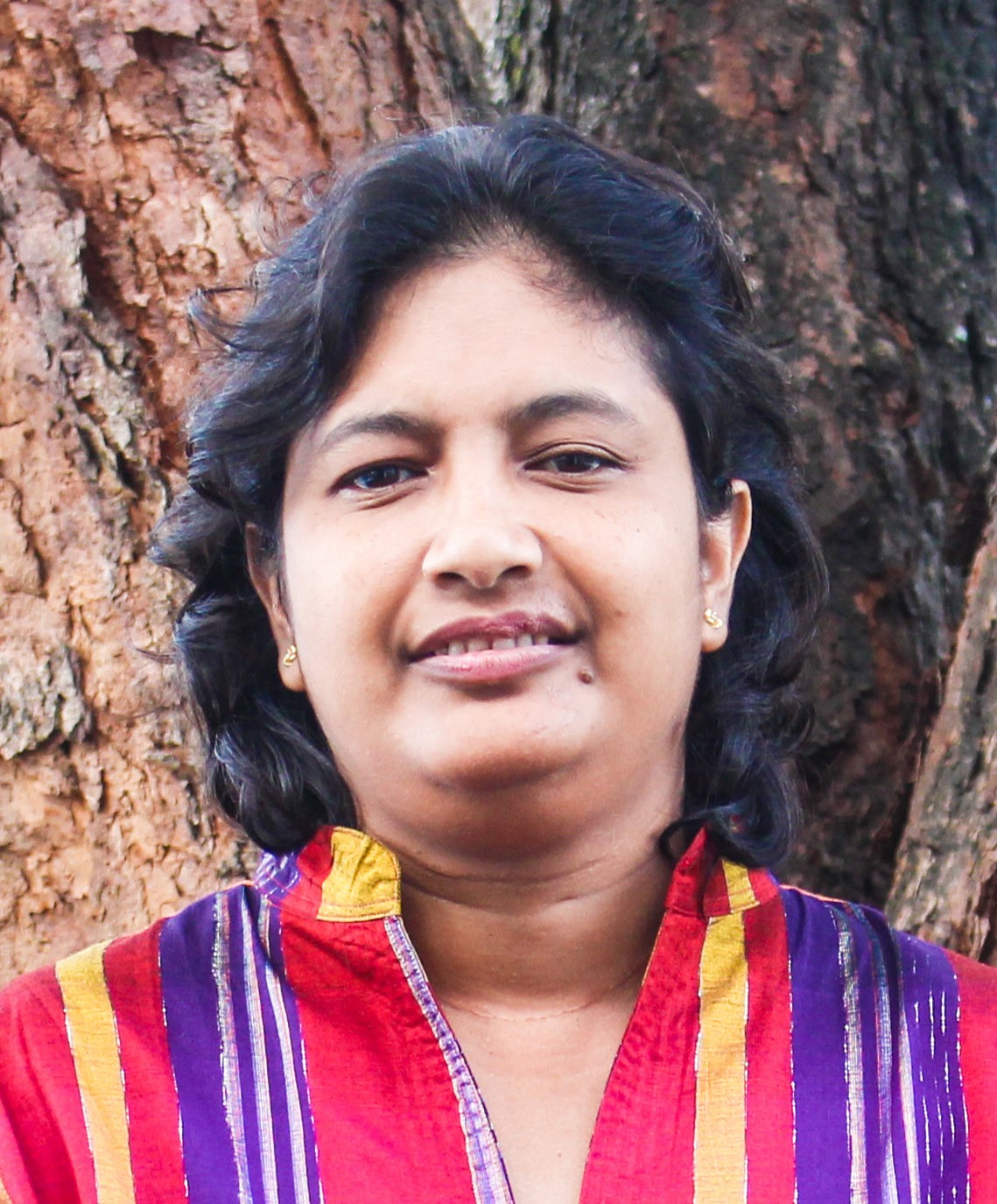
Dr Meththika Vithanage
Biography
Meththika Vithanage is a Senior Lecturer at the University of Sri Jayewardenepura (USJP), Sri Lanka. She is the founder of the Ecosphere Resilience Research Centre at USJP and serves as a Visiting Associate Research Professor at the National Institute of Fundamental Studies, Kandy, Sri Lanka and an Adjunct Associate Research Professor at the University of Southern Queensland, Australia. Dr. Vithanage’s research approach builds on enabling measurements of concentrations and reaction rates in environmental samples for key/emerging pollutants in the environment in order to assess their fate and transport to discover solutions to remediate those using different geo/bio/nano materials. Dr. Vithanage is particularly interested in elucidating the mechanistic understanding of release/remediation of pollutants with contrasting physical and chemical properties that can be used to obtain insights into environmental partitioning, chemical persistence and ultimate accumulation in biota. To this end, her current research interests are focused on monitoring atmospheric deposition, landfill leachate, water and soil for pollutants, develop and enhance the properties of biochar, nano/geo substances and composites as material for environmental remediation. She has received several awards from, TWAS-NSF Award for the Young Scientist, American Geophysical Union, Presidential Awards for Publications, Awards for science popularization and for post graduate supervision by the National Science Foundation, Sri Lanka. She is a Young Affiliate of the Third World Academy of Sciences. She was the Chairperson of the Young Scientists Forum on the National Science and Technology Commission of Sri Lanka and currently the President of Engineering, Architecture and Surveying Section of the Sri Lanka Association for the Advancement of Science. She has contributed more than 80 Science Citation Indexed journal articles and 25 book chapters. Her citation record is now passed 2500 with an H index of 25.
Meththikasuharshini.Vithanage@unisq.edu.au
meththika@sjp.ac.lk
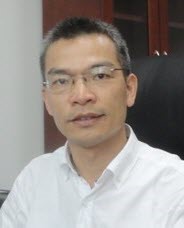
Prof Fangjie Zhao
Professor of Environmental Biology and Plant Nutrition
School of Resources and Environmental Sciences, Nanjing Agricultural University.
Biography
Fang-Jie Zhao is a Professor of Environmental Biology at Nanjing Agricultural University. He graduated from Fujian Agricultural College (BSc) in 1983 and Nanjing Agricultural University (MSc) in 1986. He obtained his PhD at Newcastle University, U.K., in 1992. After PhD, he worked at Rothamsted Research, U.K., for over twenty years, holding the positions of Higher Scientific Officer (1992-1996), Senior Scientific Officer (1996-2002), Principal Research Scientist (2002-2009) and Senior Principal Research Scientist (2009-2012). His research focuses on the biogeochemistry of trace elements, uptake and detoxification of heavy metals in plants, and bioremediation of contaminated soils. He has been working on the arsenic biogeochemistry for over 15 years, with an emphasis on understanding arsenic transformations in paddy soils and the mechanisms of arsenic uptake, translocation and detoxification in rice, a staple food crop that is a major dietary source of arsenic for Asian populations. His research has led to the discoveries of the transport pathways of different arsenic species and a new class of arsenate reductases in rice plants, opening the ways for development of strategies to reduce arsenic accumulation in rice. He has co-authored a book entitled “Arsenic & Rice” (Springer, 2012) and published more than 250 journal papers with total citations exceeding 25000 and a H index of 83 (Web of Science Core Collection). He is a Clarivate Web of Science Highly Cited Researcher (2017, 2018, 2019). He serves as an associated editor of European Journal of Soil Science, section editor of Plant & Soil, and editorial board member of Environmental Pollution, Rice, and Functional Plant Biology. He is a member of the executive board of the International Society of Biogeochemistry of Trace Elements and a member of the International Plant Nutrition Council.
Fang-Jie.Zhao@unisq.edu.au
fangjie.zhao@njau.edu.cn
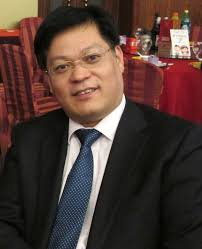
Professor Yong-Guan Zhu
Chinese Academy of Sciences (CAS), Institute of Urban Environment, Beijing, China
Biography
Dr. Yongguan (Y-G) Zhu, Professor of Biogeochemistry and Environmental Biology, is the Director General of the Institute of Urban Environment, Chinese Academy of Sciences (CAS). He has been working on the biogeochemistry of nutrients, metals and emerging pollutants (such as antibiotics and antibiotic resistance genes). Professor Zhu is a leader in taking multi-scale and multi-disciplinary approaches to soil and environmental problems. Before returning to China in 2002, he was working as a research fellow (Supported by the Royal Society London), the Queen’s University of Belfast, UK (1994-1995); and a postdoctoral fellow in The University of Adelaide (1998-2002), Australia. He obtained his BSc from Zhejiang Agricultural University in 1989, and MSc from CAS in 1992, and then a PhD in environmental biology from Imperial College, London in 1998. Dr. Zhu is currently the co-editor-in-chief of Environmental Technology & Innovation (Elsevier), associate editor of Environment International (Elsevier), and editorial members for a few other international journals. He is a scientific committee member for the ICSU program on Human Health and Wellbeing in Changing Urban Environment, and served for nine years as a member of Standing Advisory Group for Nuclear Application, International Atomic Energy Agency (2004-2012). Professor Zhu is the recipient of many international and Chinese merit awards, among them including TWAS Science Award 2013, National Natural Science Award 2009; Professor Zhu has published over 200 papers in international journals, and these publications have attracted over 10,000 citations (Web of Science) with an H-index of 58. He was selected as a Web of Science Highly Cited Researcher (2016); an elected Fellow, American Associate for the Advancement of Science (AAAS).
Yongguan.Zhu@unisq.edu.au
ygzhu@iue.ac.cn

Dr. Mohammad Ayaz Alam
Professor and Director, Department of Geology
Universidad de Atacama (UDA)
Copiapó, Región de Atacama, Chile
Biography
Mohammad Ayaz Alam (preferred name Ayaz) is currently serving as Director of the Department of Geology at the Universidad de Atacama since 2018, and teaches Geochemistry, Hydrogeology and Environmental Geology courses. He obtained Ph.D. and Master of Science in Applied Geology degrees from the Indian Institute of Technology Bombay (IIT Bombay), and was awarded the Professional Title of Geologist and Doctor in Geology by the Universidad de Chile in recognition of his academic career. He also holds MBA (Finance) degree of the Universidad de Chile.
Dr. Alam returned to the academics in 2017 after working in the industry for several years as professional, consultant and manager. He has over 20 years of experience in geochemical exploration of geothermal resources in India and Chile, and introduced an elective course “Geothermal Geochemistry” in the Department of Geology at the Universidad de Chile as Postdoctoral Researcher under the Bicentennial Program of Science and Technology (PBCT) of CONICYT (now ANID), Chile. He worked as Geochemist for the leading geothermal energy company Energy Development Corporation (EDC). He contributed to the Chilean section of the World Bank’s RISE (Regulatory Indicators for Sustainable Energy) project as Special Consultant on Chile, Senior Consultant on Geothermal Energy & Energy Project Development for Transcarbon International.
Dr. Alam is currently working environmental issues associated with exposure to Arsenic and other toxic metals and metalloids in the Atacama Region of Chile. Besides he is also involved in the hydrological study of the region and is investigating the role of geothermal fluids in the formation of lithium in the closed basins in order to develop environment friendly mining methods that will have minimum impact on the salt flat ecosystems.
Dr. Alam was awarded Chilean nationality in March 2019, and was presented citation of the Letter of Nationality at the Presidential Palace La Moneda in recognition of his services to the country.
ayaz.alam@uda.cl
Junior Members
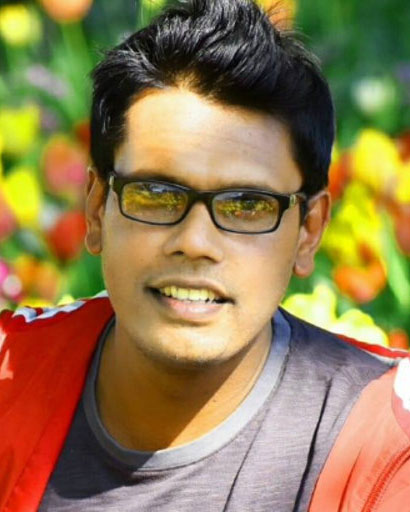
Dr Indika Herath
Personal Scientific Assistant to the Chair, University of Southern Queensland (USQ), Toowoomba, QLD, Australia
Biography
Dr Herath received his Bachelor degree majoring in Chemistry from the Open University of Sri Lanka (OUSL) in 2010 and Master degree in Analytical Chemistry from the University of Peradeniya, Sri Lanka in 2014. He received his PhD in Environmental Engineering and Technology from the University of Southern Queensland in 2020 with the award of Excellence in Doctoral Research. His Doctoral research focused on the development of a fast analytical protocol for speciation of arsenic and biochar mediated control of arsenic mobility in paddy soil. Dr Herath’s research interests are primarily involved in the application of biochar for the remediation of As-contaminated wastewater and soils, understanding of geochemical processes in arsenic-contaminated groundwater, arsenic-biochar interactions in water and soils, kinetics, isotherm and thermodynamic modelling, development/improvement of analytical instrumentation for speciation of arsenic and antimony, metal dissolution from serpentine soils and Biosorption, Phytoremediation and Phytoextraction technologies.
Dr Herath began his research career as a Research Assistant (Grade 1) at the National Institute of Fundamental Studies, Sri Lanka in 2013. He has also awarded research scholarships from the Nanjing Agricultural University, China (2018) and King Saud University, Saudi Arabia (2015) to widely expand his research work on understanding arsenic-biochar-soil interactions in metal-contaminated soils. As a young researcher, he has a proven track record of publishing, with a portfolio of over 25 research documents, including peer-reviewed research and review articles, book chapters, and international conference proceedings in highly ranked international journals. He has recently developed a biochar technology based on silica fertilizer, silica based natural clay minerals and rice husk (agricultural waste) for the immobilization of toxic arsenic species in paddy soil which would be a promising approach to mitigate arsenic related issues in agricultural croplands affected by mining industries and other industrial and domestic discharges on a global scale. His recent research interest is to develop and implement a green technology based on biochar derived from agricultural wastes for the rehabilitation of acid sulfate soil (ASS) in Australia; because the impact of acid sulfate soils on the Great Barrier Reef is of particular concern as it possesses an economic, social, and iconic asset value of $56 billion, contributing $6.4 billion to the Australian economy. Dr Herath has been recognized as an outstanding reviewer for the contribution to reviewing high impact factor Elsevier journals. He is the recipient of a presidential award from the government of Sri Lanka for his research published in highly ranked international peer-reviewed journals in 2018.
Indika.Herath@unisq.edu.au
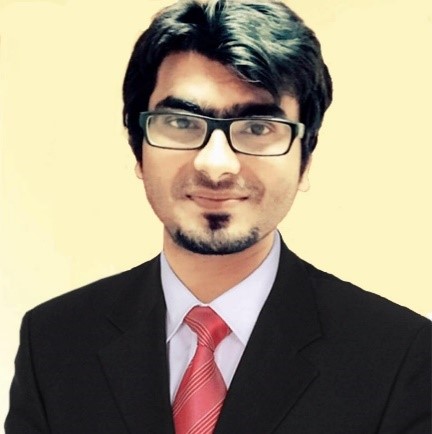
Dr Munir Ahmad
Research Scientist, King Saud University, Riyadh, Kingdom of Saudi Arabia
Biography
Dr Munir obtained his PhD degree in Environmental Soil Chemistry from King Saud University Riyadh, Saudi Arabia in 2017. He is currently working as a Research fellow in Soil Science Department, College of Food and Agricultural Sciences, King Saud University Riyadh, Saudi Arabia. He is also serving as a Scientist in Saudi Biochar Research Group. Dr Munir has been involved in research related to engineering/designing and fabricating the low-cost sorbents for wastewater treatment contaminated with potent pollutants such as arsenic and antibiotics. He has also been involved in synthesizing biochar based nanocomposites for soil rehabilitation and carbon sequestration. As an active scientist in Saudi Biochar Research Group, he has been researching on the application of engineered biochar derived from biowastes as soil amendments to improve crop productivity in contaminated and degraded agricultural soils. Dr Munir has gained much expertise in handling and operating many research equipment such as scanning electron microscope (SEM), XRD, TGA-DTG, CHNS-O analyzer, TOC analyzer, HPLC, Flame photometer, and Spectrophotometer. As a young scientist, Dr Munir has published 23 research documents including peer-reviewed international research articles, review articles, and book chapters. He is currently serving as a reviewer for various high-ranked international peer-reviewed journals.
amunir@ksu.edu.sa
Ph.D. Students
University of Southern Queensland, Australia

Susan Alkurdi
Arsenic and fluoride removal from water using bone char
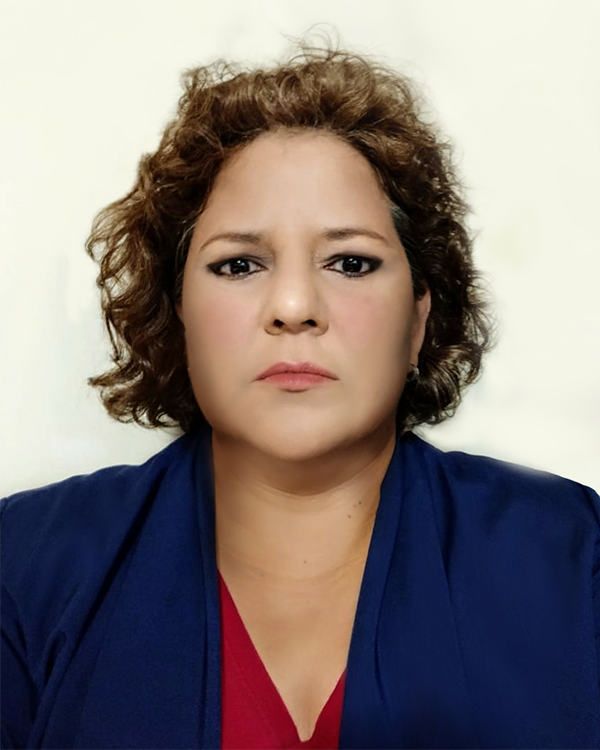
Valeria Delgado
Impact of geothermal arsenic from active volcanic areas on groundwater resources used for water supply: Hydrological and geochemical mechanisms and processes controlling distribution, speciation, mobility and transport of arsenic
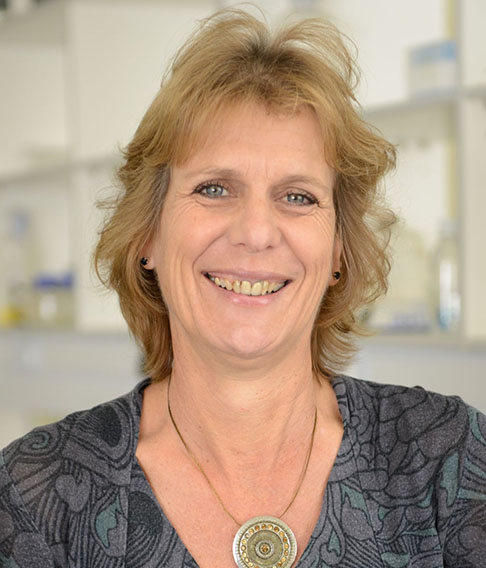
Bettina Genthe
Do Arsenic Water Quality Guidelines adequately protect human health? An integrated health risk assessment and burden of disease assessment of arsenic exposure
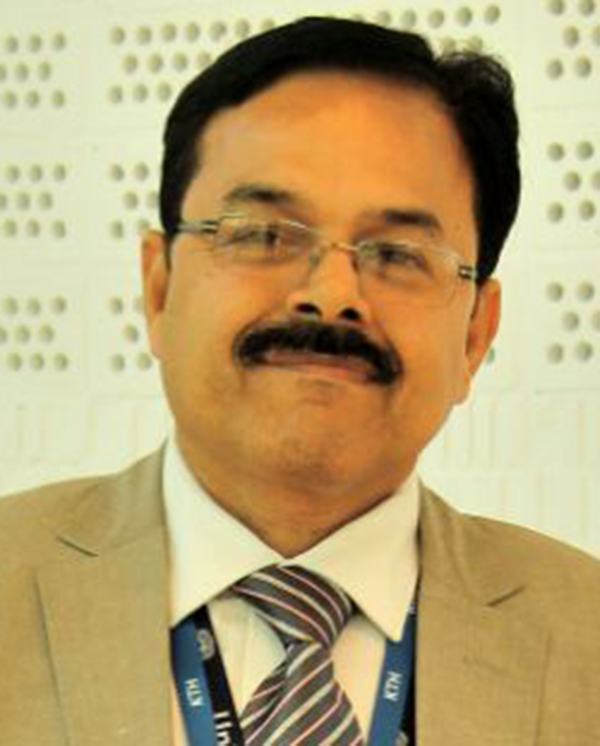
Nannakumar Santadasani
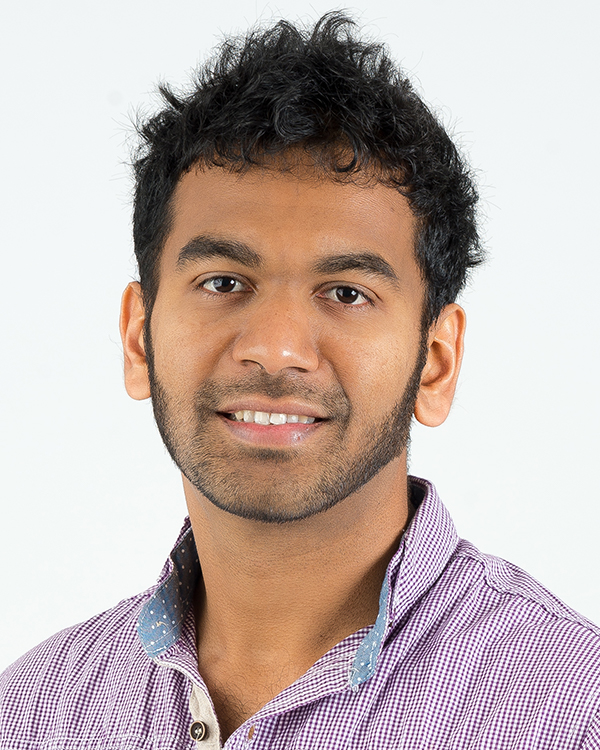
Prasanna Kumarathilaka
Understanding the mechanism of arsenic movement in wetland rice ecosystem
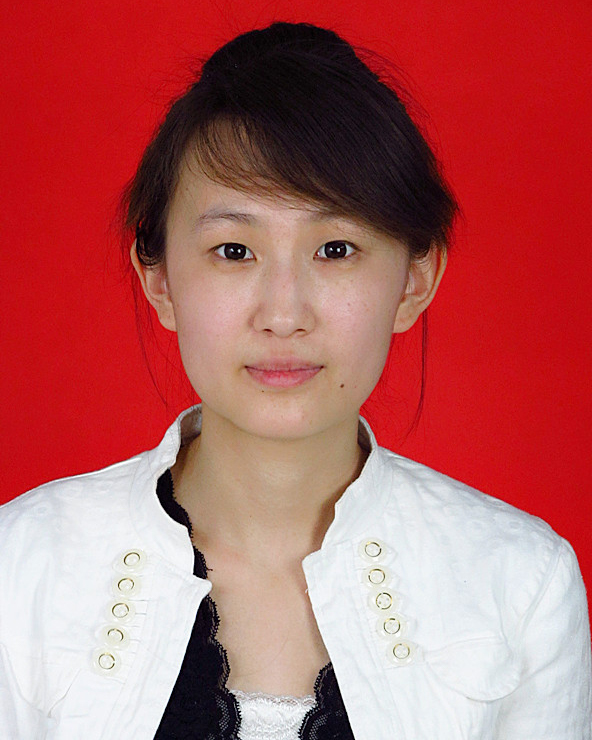
Chengcheng Li
Understanding the mechanisms of Arsenic mobilization in As-rich groundwater systems – the interaction of arsenic-carbonates in sediments
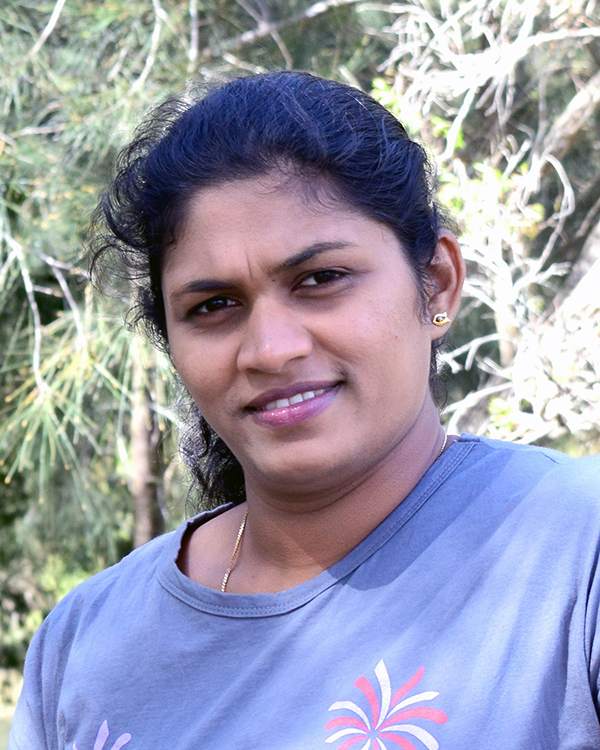
Lakshika Weerasundara
Development of a biochar-hydrogel composite and Fe3O4 nanoparticles functionalized polyvinyl alcohol/chitosan magnetic composite hydrogel as efficient and low-cost materials to removal of arsenic in aqueous solutions
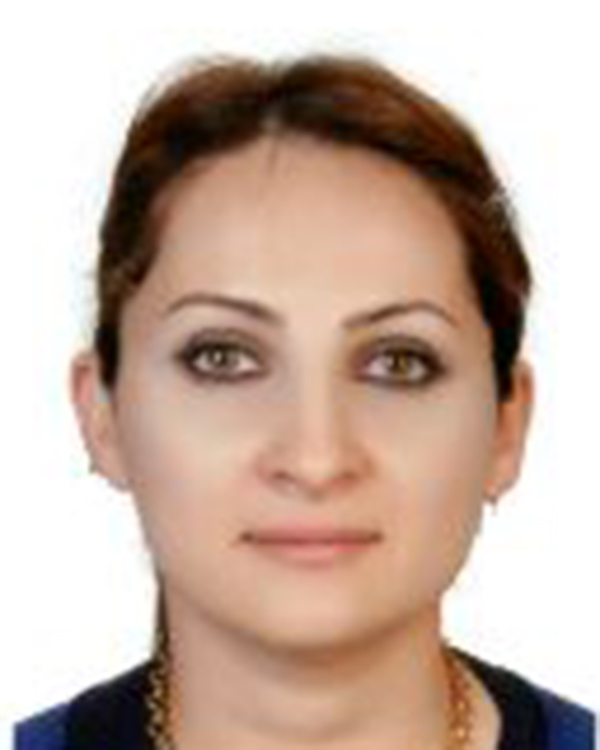
Sara Shaikhli
Enhancement of floc characteristics using novel coagulants for separation in a hybrid system (coagulation-hydrocyclone) for water treatment
KTH Royal Institute of Technology – Sweden (UNESCO Chair Member: Prosun Bhattacharya)
Ongoing
- Mr Julian Ijumulana: Hydrogeological controls on spatial variability of geogenic contaminants in drinking water resources
- Mr Fanuel Ligate: Drinking water quality and occurrence of arsenic and fluoride in the Tanzanian rift valley water wells and associated health effects
- Ms Regina Irunde: Adsorptive removal of arsenic using local adsorbents from drinking water sources at Geita, north Mara gold mining and Iramba district in Singida province of Tanzania
- Mr Israel Quino Lima: Hydrogeochemistry of arsenic and other trace elements in the Katari river – Cohana bay region around Lake Titicaca, Bolivia
- Mr Arslan Ahmad: Arsenic removal at groundwater treatment plants by coprecipitation under variable redox and filtration conditions
Nanjing Agricultural University – PR China (UNESCO Chair Member: Fangjie Zhao)
Completed
- Dr Chengcheng Wang: Mechanisms of arsenic accumulation and tolerance in rice and Arabidopsis
- Dr Xiaowei Xu: Manganese oxides and sulfate reduction influencing arsenic speciation and bioavailability in paddy soils
- Dr Peitong Wang: Study on arsenate tolerance mechanisms in rice and Arabidopsis
- Dr Shengkai Sun: Mechanisms of arsenite transport and detoxification in rice
- Dr Chuan Chen: Microbial mechanisms of arsenic methylation, demethylation and volatilization of arsenic in paddy
Korea University – South Korea (UNESCO Chair Member: Yong-Sik Ok)
Ongoing
- Mr Soobin Kim: Arsenic and microplastics in the environment
- Ms Pavani Dulanja Dissanayake: Advanced spectroscopic investigations of arsenic species
- Ms Ura Cho: Effect of arsenic on human health
University of Wuppertal – Germany (UNESCO Chair Member: Jörg Rinklebe)
- Xing Yang: The impact of biochar application on remediation of soil contaminated with potentially toxic elements
EAWAG – Switzerland (UNESCO Chair Member: Michael Berg)
Ongoing
- Ms Alexandra Lightfoot: Groundwater dating and carbon dynamics in arsenic contaminated aquifers
- Mr David Haaf: Understanding and predicting temporal trends of groundwater arsenic contamination on a Delta-wide scale in Vietnam
The Hong Kong Polytechnic University – Hong Kong, P.R. China (UNESCO Chair Member: Daniel C.W. Tsang)
Ongoing
- Ms Yuqing Sun: Treatment of arsenic and potentially toxic elements in fracking wastewater
- Mr Di Wang: Effect of iron colloids on arsenic and other contaminants in advanced wastewater treatment
- Ms Season Chen: Fate of arsenic transport in the environment
The University of Queensland – Australia (UNESCO Chair Member: Jack C. Ng)
Ongoing
- Mr Md Nazrul Islam: Effects and health risk assessment of mixed metals (and arsenic) at and near a ship wrecking yard in Bangladesh
- Ms Maryam Khan: Bioaccessibility, interaction effects and risk assessment of mixed metals including rare earth elements and arsenic
- Ms Jingyu Liu: Improve understanding of arsenic exposure based on local variety of rice, irrigation water and paddy rice soil in Cambodia.
- Ms Shen Yang: Molecular mechanism of metals (and arsenic) and polycyclic aromatic hydrocarbons induced perturbation of the aryl hydrocarbon receptor signalling pathways.
